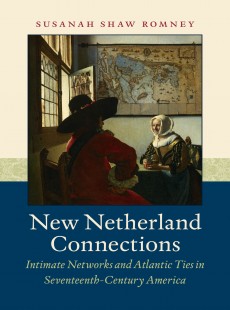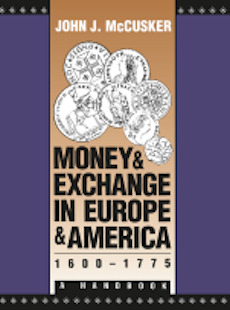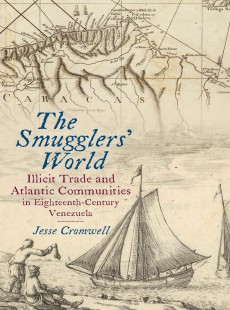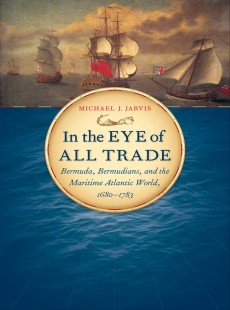
New Netherland Connections
Intimate Networks and Atlantic Ties in Seventeenth-Century America
Susanah Shaw Romney
 Publisher: Omohundro Institute
Publisher: Omohundro Institute
Imprint: OIEAHC
Published: 02/2014
Reprint: 2017
Pages: 336
Subject: History, Social Science, Women's Studies,Native American/Indigenous Studies,African American Studies,European History
Paperback ISBN: 9781469633480
eBook ISBN: 9781469614267
DESCRIPTION
Susanah Shaw Romney locates the foundations of the early modern Dutch empire in interpersonal transactions among women and men. As West India Company ships began sailing westward in the early seventeenth century, soldiers, sailors, and settlers drew on kin and social relationships to function within an Atlantic economy and the nascent colony of New Netherland. In the greater Hudson Valley, Dutch newcomers, Native American residents, and enslaved Africans wove a series of intimate networks that reached from the West India Company slave house on Manhattan, to the Haudenosaunee longhouses along the Mohawk River, to the inns and alleys of maritime Amsterdam.
Using vivid stories culled from Dutch-language archives, Romney brings to the fore the essential role of women in forming and securing these relationships, and she reveals how a dense web of these intimate networks created imperial structures from the ground up. These structures were equally dependent on male and female labor and rested on small- and large-scale economic exchanges between people from all backgrounds. This work pioneers a new understanding of the development of early modern empire as arising out of personal ties.
ABOUT THE AUTHOR
Susanah Shaw Romney is assistant professor of history at New York University.
AWARDS
Jamestown Prize (2013)
Annual Hendricks Award, New Netherland Institute (2013)
REVIEWS
"Romney’s emphasis on the intersection of intimacy and imperial networks advances our understanding of the exercise of colonial power. This book demonstrates the significance of domestic structures and personal relationships in the expansion of early modern European empires."
--Laura J. Mitchell, University of California, Irvine
"How do you build an empire? Not with armies and might alone; not just with financial clout, or guile, or aggression. As Romney so elegantly demonstrates, the Dutch empire was built and maintained by individuals. Families, friends, and colleagues stitched together ‘intimate networks’ that stretched across the globe and became the ground-level means by which the colony of New Netherland operated."
--Russell Shorto, author of Amsterdam: A History of the World's Most Liberal City
"Demonstrating the significance of family ties and social bonds within and between Dutch, Native, and African communities, New Netherland Connections transcends the study of a single mid-Atlantic region and gives us an intimate social history of empire."
--Simon Middleton, University of Sheffield
"An excellent book that is narrowly focused with wide implications."
--Itinerario
"Romney offers a complex, refreshing view of the Dutch Atlantic world, constituting a much-needed intervention in the field of New Netherland studies."
--Choice
"A complex, refreshing view of the Dutch Atlantic world."
--Choice
"An important book in demonstrating how early modern empires were built and functioned and how inhabitants from all social ranks on both sides of the Atlantic negotiated and made sense of their place within empire."
--de Halve Maen
"Critically engages Dutch and American historiographies of colonization while presenting a suggestive new approach for understanding empires as social networks based in intimacy."
--The Journal of American History
"[Romney] has given historians a new way of conceptualizing and understanding Atlantic world empires."
--American Historical Review
"An innovative and important addition to the thriving field of New Netherland studies, as well as to the study of early modern European colonization."
--William & Mary Quarterly
RELATED TITLES







